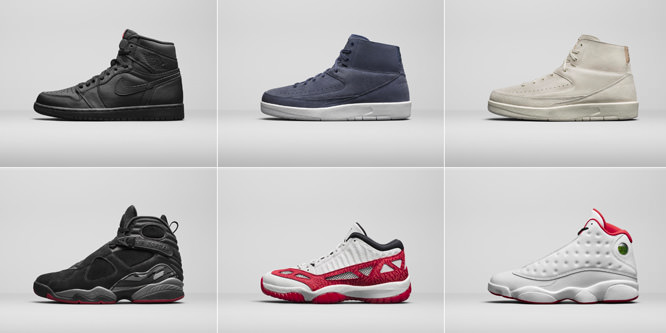
Source: Nike
Nike is hoping a new direct deal with Amazon.com will help the brand boost sales while curtailing the counterfeiting activity that has affected its top and bottom line performance for years.
According to reports, Nike is close to joining Amazon’s brand registry program, allowing the company to sell directly to the e-tailer while maintaining control of its messaging and gaining access to consumer purchasing data.
As part of the registry, Nike would also identify unauthorized sellers and have them shut down on Amazon’s marketplace. Today, there are almost 2,000 branded products in the registry from companies such as Clorox, Johnson & Johnson, Procter & Gamble, Toms and Victoria’s Secret, according to Bloomberg.
While Nike has sold on Amazon-owned Zappos.com, it has never sold its products directly to the e-tail giant. Moving to Amazon could provide a boost to sales at a time when Nike has been hurt by the Sports Authority bankruptcy and a sales slowdown at other chains. Nike rivals Adidas and Under Armour both sell directly to Amazon.
“You have to be on Amazon,” Herb Sawyer, iCrossing’s vp of strategy, told Digiday. “So you’ve got to figure out a way to parallel-path like Amazon. You have to have a platform where the store is in your pocket, but also speak to people who are thinking beyond the immediate buy and get them beyond a commodity purchase.”
Nike’s wholesale business currently represents about three-quarters of its total revenues, but consumer direct rose 18 percent in the last quarter, more than triple the brand’s growth overall.
The Financial Times reports that selling on Amazon would give Nike a more direct connection with Millennials males. The publication, citing a recent Goldman study, reported Millennial men rate Amazon as their number one site for every category except shoes and athletic merchandise. Adding high profile brands such as Nike is key to Amazon’s strategy of becoming the biggest seller of apparel in the U.S.
Goldman estimates that Nike revenues would rise one percent above current levels by selling on Amazon.
- Amazon reportedly to sell Nike shoes directly via brand registry designed to block knockoffs – Bloomberg/The Seattle Times
- Possible Nike-Amazon partnerships put sports retailers on the ropes – Financial Times
- Nike’s frenemy approach to Amazon is a harbinger of things to come – Digiday
- Nike to sell some items directly to Amazon – The Wall Street Journal
- Nike is joining the United States of Amazon – Racked
- Why is Amazon trying to convince CPG giants to go consumer direct? – RetailWire


Leave a Reply
You must be logged in to post a comment.